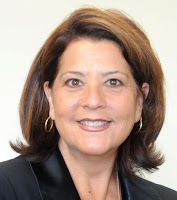< Unexpected visitors | Index | A rather difficult guest >
Another couple arrives at Ffald-y-Brenin and they, too, are blessed. A rhythm of blessing is established as people arrive daily. Roy and Daphne pray for this to continue - and it does.
 Last time, Roy explained how a passing couple felt compelled to visit Ffald-y-Brenin and ask about the presence and purpose of the centre. After a tour they were powerfully touched by the Almighty's presence. In this fourth part we learn what happened next.
Last time, Roy explained how a passing couple felt compelled to visit Ffald-y-Brenin and ask about the presence and purpose of the centre. After a tour they were powerfully touched by the Almighty's presence. In this fourth part we learn what happened next.Being a somewhat strange, fallible creature I didn't connect their visit with my earlier prayer. So God sent someone else to my door to help me join up the spiritual dots. The next day another knock on the door was followed by the same enquiring words: 'Hello, could you tell us what this place is and what goes on here?'
At last, as I went through the social pleasantries, it was dawning on me: this was God's response to my prayer. That became clearer the more we talked. They had no Christian faith and didn't seem very interested in God. They had sensed something and were simply curious.
While we may like to think that spiritual breakthrough will be surrounded by stirring worship and heartfelt preaching, we now began to observe a pattern which involved the simple hospitality of welcome, cups of tea, scenic tours and moments, and then a few minutes - or sometimes hours - of profound encounter with the Holy Spirit. Our latest couple were open to the idea of a prayer of blessing when they reached the chapel, so I mentioned our tradition. This time the Holy Spirit came with even more manifest power and they were weeping profusely. But still it seemed right to slip away and leave them to hear from God.
Later, as we prayed together with our ever-changing community, we said to God, 'Lord, we like what you're doing, and we bless what you're doing. Lord, would you please do more of it?' And he did. For a period of time, each day, we would pray and say, 'Lord, would you please send someone else?' And he would. Many people came up the drive.*
The repeat of the previous day's events enabled Roy to understand that this was indeed an answer to prayer. It was no longer an isolated event, there was a pattern. It's always easier to see a pattern. It's much to Roy's credit that two events were enough; many times I think we are far slower and have to experience something three or four times or more before we 'get' it.
There are some powerful take away messages for us. Notice that worship and preaching were not required, just simple hospitality. I'd suggest that underlying this was a willingness to take people as they are, to accept them.
Being welcomed and accepted opens hearts and minds. It eliminates suspicion and reduces anxiety. It enables people to be open and straightforward and relaxed: all too often we underestimate the value of simple hospitality. If we confront people with formality they feel the need to conform, to behave 'properly' in an unfamiliar environment. Roy and Daphne learned this very quickly; they touched people's lives simply and Father was then able to touch those same lives profoundly.
Consider the fruit of the Spirit described by Paul in Galatians 5:22-23 - love, joy, peace, patience, kindness, goodness, fidelity, gentleness, and self control. If we have that fruit in our lives, and allow it to inform and direct our interaction with others, we will be able to touch people's live in the same way that Roy and Daphne do.
We can't change people, only Jesus can do that. But one way of introducing people to Jesus is to demonstrate his nature. Felicity Dale makes the same point in a different way. We need to stop trying to do things and learn to let the Spirit of Christ do things in us and through us. He's been telling us this for a long time. Check this post from eight years ago 'His work, not ours'. Take special note of the first and last paragraphs.
Read a brief review (includes several ways to buy a copy of the book).
*Copyright 2008 Roy Godwin, Dave Roberts. The Grace Outpouring published by David C Cook. Publisher permission required to reproduce. All rights reserved.
< Unexpected visitors | Index | A rather difficult guest >






